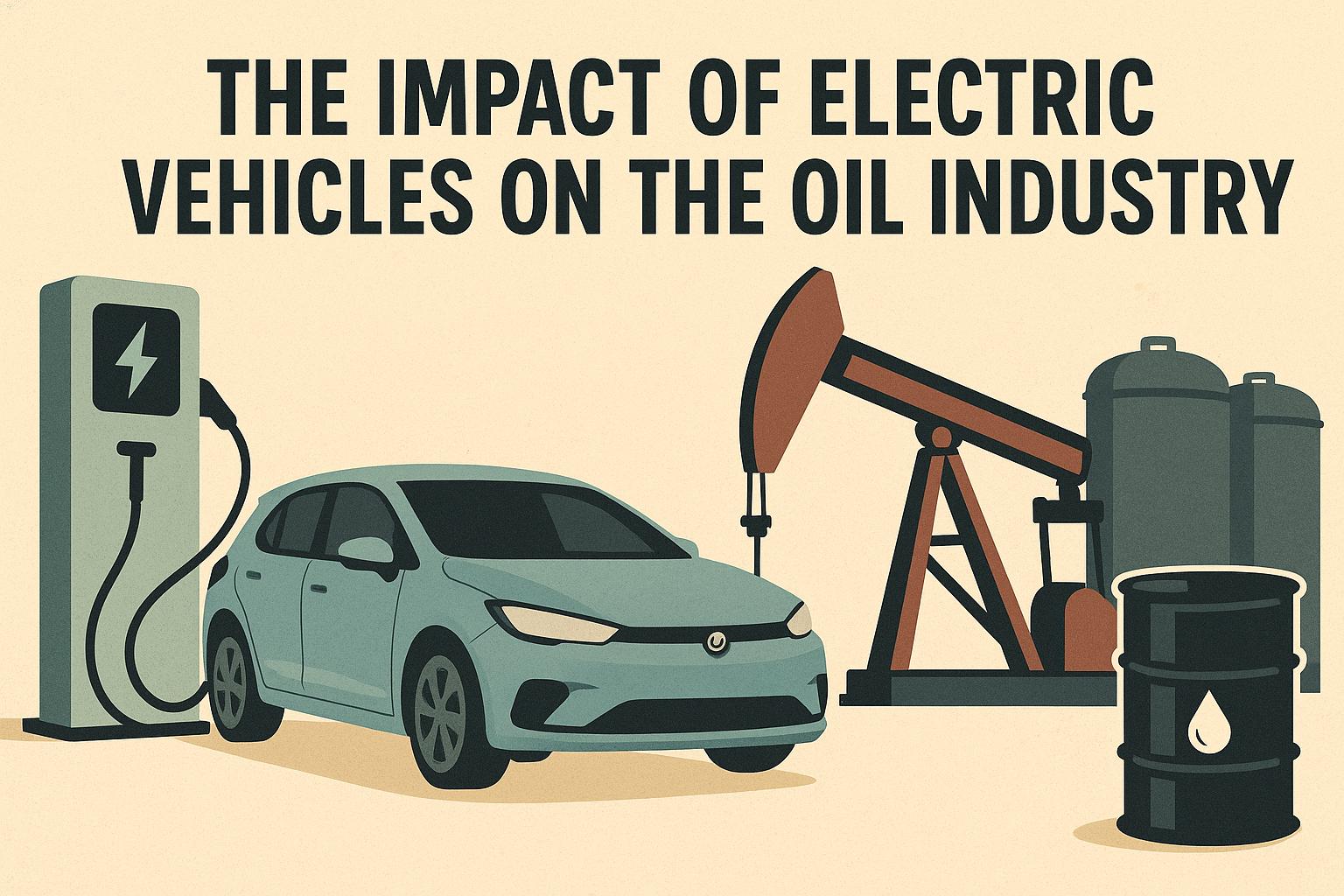
The Rise of Electric Vehicles
The increasing prominence of electric vehicles (EVs) in recent years marks a pivotal shift in the automotive industry. This shift, driven by heightened concerns regarding climate change, significant technological advancements, and sweeping policy changes favoring sustainable energy sources, signals a broader transition not just within the realm of personal and commercial transportation, but also across various interconnected industries. The automotive market’s transformation has been unmistakable, with key players such as Tesla, Nissan, and Chevrolet pioneering developments in EV technology. According to data from the International Energy Agency, electric cars on roads worldwide eclipsed the 10 million milestone in 2020. Such substantial growth in electric vehicle adoption carries wide-ranging implications for industries, particularly the oil sector.
Reduced Demand for Oil
A notable consequence of increasing electric vehicle usage is the diminishing demand for oil. As individuals and businesses increasingly choose EVs over conventional vehicles powered by internal combustion engines, there arises a consequent reduction in the need for gasoline and diesel fuels. Organizations such as the International Energy Agency have documented this impact, observing a discernible shift in oil demand dynamics. The rise of EVs represents a fundamental change rather than a fleeting trend, necessitating that the oil industry evolve accordingly to remain viable as consumer preferences and technological innovations progress.
Shift in Energy Consumption
The adoption of electric vehicles also signifies a transformation in how energy is consumed and sourced. Unlike their gasoline counterparts, electric vehicles operate on rechargeable batteries. This reliance on electricity as a power source offers the advantage of drawing energy from renewable resources such as solar and wind, presenting a more sustainable alternative to the finite reservoirs of crude oil. Consequently, there is an ongoing shift in energy investment focus from fossil fuels to renewable energy sources. Such a shift challenges the longstanding business models of the oil industry, pushing it toward necessary adaptations to align with evolving energy consumption patterns.
Innovations and Adaptation
Faced with these challenges, the oil industry is actively pursuing avenues for innovation and adaptation rather than idly perceiving the rise of electric vehicles as a threat. Numerous oil companies have initiated strategic investments in electric vehicle charging infrastructure, explored alternative energy projects, and developed cleaner fuel technologies. Notably, several prominent oil corporations have undertaken significant acquisitions in the EV charging sector. By doing so, they demonstrate a proactive approach to modifying their business strategies, aiming to sustain competitiveness and relevance in the energy landscape transformed by the increasing prominence of electric vehicles.
Future Prospects
Looking ahead, the impact of electric vehicles on the oil industry is poised for continued growth. As EV technology advances and becomes more accessible in terms of affordability, its adoption will likely gain further momentum. Government policies intended to mitigate carbon emissions provide an additional impetus for the shift toward electric vehicles. These measures include incentives for purchasing EVs and the implementation of stringent emission standards for traditional vehicles, effectively reinforcing the transition to electric mobility. In response, the oil industry’s future will likely involve a greater emphasis on diversification and sustainable initiatives. This shift aims to ensure continued relevance and competitiveness in a transitioning energy environment characterized by a growing focus on clean energy solutions.
The transformation spurred by the rise of electric vehicles captures the essence of larger shifts in global energy markets, consumer behavior, and technological progression. It highlights a move towards embracing cleaner, more sustainable energy practices and underscores the need for various industries—particularly the oil sector—to rethink traditional approaches and adapt to the changing landscape. As society progresses further into an era marked by innovation and environmental consciousness, the interplay between electric vehicles and the oil industry will undoubtedly continue to evolve, shaping the future of energy consumption and transportation practices.